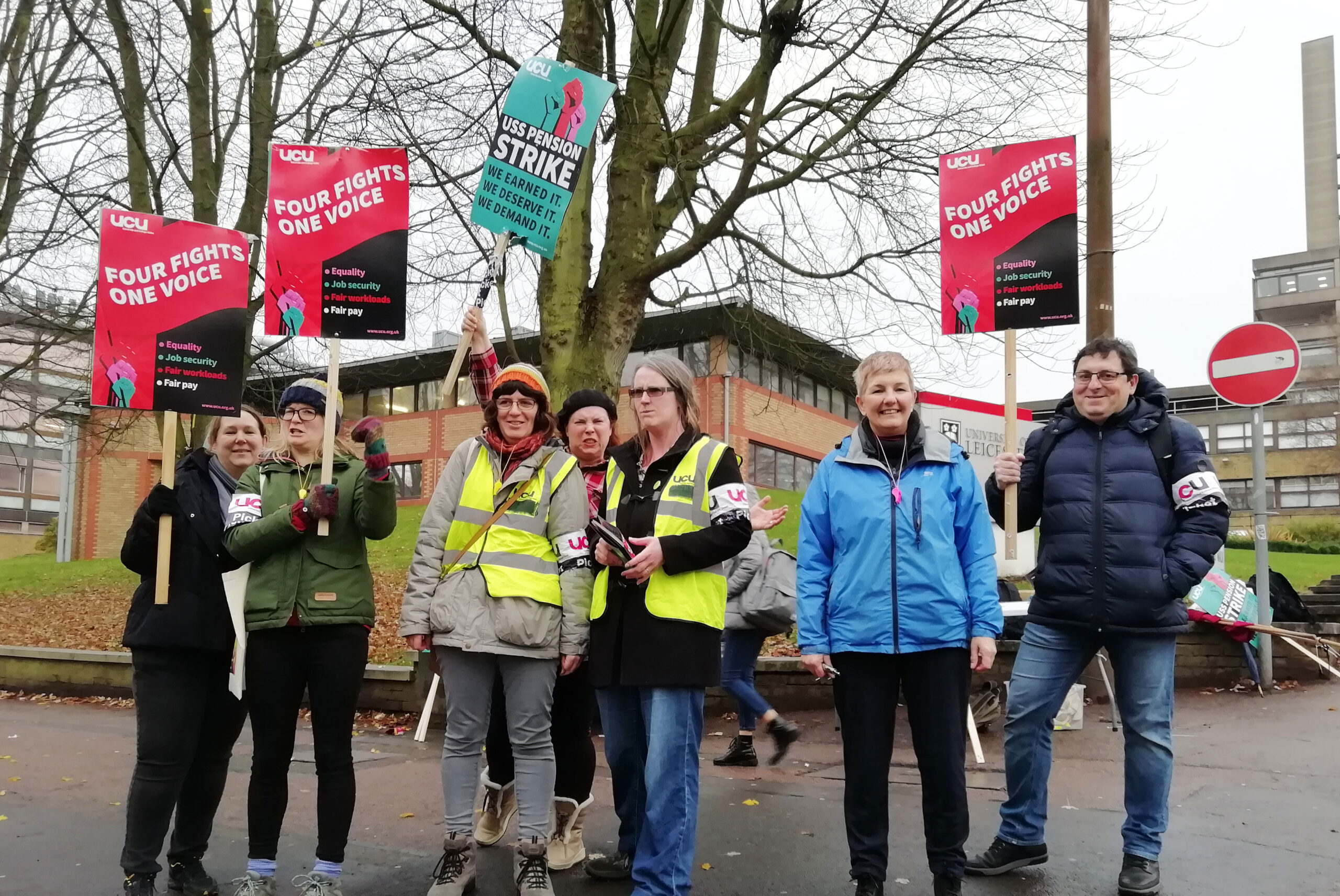University workers vote for industrial action in two disputes
Socialist Party members in UCU
University staff have voted in favour of industrial action in two disputes, paving the way for strike action in the coming months if management does not agree to improvements to pensions, pay and conditions.
In the ‘USS pension’ dispute, 76% of members voted for strike action, and 88% for action short of a strike. In the ‘four fights’ dispute which covers pay and pay-related issues including casualisation, workload and inequalities, the ‘yes’ vote for strike action was 70% and 85% for action short of a strike.
Overall, more than 50% of the membership voted in both disputes, beating the Tories’ imposed strike threshold. The results mean that had the ballots been run on an aggregated basis, the union would be in a position to call every university out on strike.
However, the ballots were run on a disaggregated basis, meaning each individual branch needed to hit the threshold to be legally able to take action. This strategy has led to more patchy results. In the USS dispute, where only pre-1992 universities are included in the scheme, 37 out of 68 university branches hit the threshold. In the ‘four fights’ dispute, 54 out of 164 hit the threshold.
Still, it is a significant victory that the union membership collectively delivered the mandates it did. It is a strong indicator of the mood which exists among university workers to fight. It is no small feat to achieve these results on two national disputes run side by side, with a short ballot window of just under three weeks. The success of the ballot is even more impressive considering many campaigns were coordinated remotely. The results will surely give confidence to workers from other sectors.
The number of branches hitting the threshold is less than in 2019-20, but the overall turnout was higher. This is because some branches delivered exceptionally high turnouts. These were noticeably those branches that have played a fighting role in local disputes during the last year.
Additionally, many branches were within a handful of votes of hitting the threshold. Given many branches reported problems with receipt of ballot papers, these branches could easily get over the line in a reballot. For example, 22 branches in the USS dispute had a turnout between 40% and 50%, with multiple branches hitting 49%. These branches should be reballoted while the momentum is high, so that they can join action in the new year.
Critical discussion is now taking place in the union about the best strategy for taking the disputes forward. Branches are being consulted and a decision will be taken at a Higher Education Committee on Friday 8 November.
In ‘four fights’, the general secretary is posing an aggregated ballot in the new year, with action in the spring and into the summer. Strategically, both options would strengthen the dispute, with the timetable enabling action through the summer exam period.
However, there is a danger of not achieving the mandate if the membership loses confidence over whether the leadership is seriously prepared to back up the fight. For example, many members on insecure contracts see general secretary Jo Grady’s proposal as a cynical opportunity to delay struggle and put the dispute on hold in favour of USS.
Therefore, the union should call out branches that are ready and prepared to initiate strike action now, while coordinating days of action and protest in the branches not yet over the threshold. This would not only launch the dispute but also build the momentum for achieving an even better aggregated ballot result.
This is a clear opportunity to build the union and attract new sections of workers who want to fight, including postgraduate researchers and staff on temporary and insecure contracts. These make up a significant portion of the university workforce.
As more unions also prepare to ballot for industrial action, the possibility for coordinated action with other unions is also raised. Cross-union action would pose a serious threat to government and employer attacks, and raise the sights of workers more broadly for better pay and working conditions.









